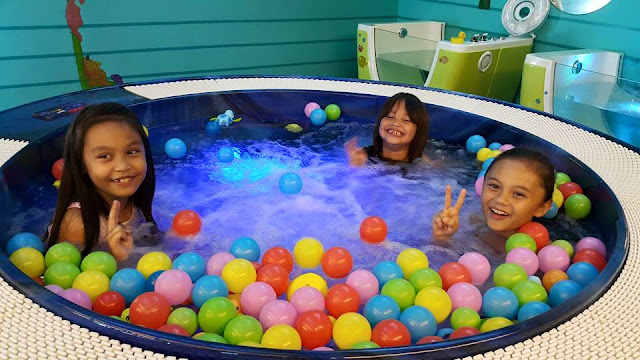Interview & Photos by Stella Matilda
Charlotte Chan Kota Kinabalu’s Favourite Ballerina Seeks to Inspire More Young Dancers.
How long have you been dancing and when did you start?
At the age of 10 when my mother put me and my sister in our first ballet class. I just thought that it would be for fun, not knowing what it would turn into. I met another dance teacher when I was 16, and I learnt more about dancing. Besides ballet, I’ve learnt contemporary dance and choreography as well. I’ve decided to pursue my dream to study a bachelors degree in Dance when I was 20. Well, age is not an excuse, I did everything I could to learn as much as I could during university time.
How often would you dance in a day/week?
My university life was entirely dedicated to dancing. I spend 6 to 8 hours in a day when I in university. Sometimes, we spend more than that if there’s a performance coming. However, I am focusing on teaching here, so I dance once a week to maintain my form.
What was your favourite performance to see/be in?
My university graduation show: Art, Memory, Dream in 2011.
What shows have you been in?
Taiwan: Performed in Wa Dance (2009)
-Taipei, Wu Yun Feng Hua (2010)
-Taipei, Art, Memory, Dream (2011)
-Taipei & Tai Zhong
Kota Kinabalu: Joined Synergy Dance
Studio since 2006. Performed in Pandora’s
Box (2006), Snow in my Heart
(2008), No-Love-Story (2012), Marking
Our Life (2013), Exodus (2012) and
Halloween Chap Pa Lang (2012).
Do you have any secrets for dancing?
Dancing is my life and I only hope that there are many more young ballerinas out there feel the same way. Every correction you receive is a gift from a dance teacher who sees greater potential in you. Appreciate every correction and never give up! You have to love dancing to stick to it. It gives you nothing back, no manuscripts to store away, no paintings to show on walls, no poems to be printed and sold, nothing but that single fleeting moment when you feel alive.
What do you have to do to prepare for a show?
Hard work and dedication are needed for a show. Besides those, the most important thing to have is a positive attitude.
As an instructor, besides dance choreography, dancers’ technique & trainings, I have to prepare and deal with advertising, ticket selling, lighting, photography, videography & backstage crew flows. Extra dance practises and rehearsals are needed and all these require cooperation from parents.
What do people not know about the world of ballet?
In this industry, if you don’t put the work in yourself, no one is going to do it for you. There’s a huge part that comes from having talent, but without hard work, one will never make it.
Why do you think people see Ballet as an easy thing that anyone can do?
This, perhaps; dancers have the ability to make what they are doing look graceful instead of grueling and, at times, painful. The beauty is that they have the ability to make it look completely effortless.
What is the hardest thing about ballet?
I think ballet is one of the most demanding things to do. It hurts. It takes time. It requires dedication and will power. You will need to make healthy decisions. It requires sacrifice. You will need to push your body to the maximum. There will be temptation. But when you reach your goal, its WORTH IT.
Address: Unit 5, 1st Floor, Block K, Metro Town, Jalan Bunga Ulam Raja, 88300 Kota Kinabalu, Sabah.
Facebook: Charlotte Dance Studio
Contact: 011-1601 4909
Offering a complete program for the young dancer from age 4 years old and above. The studio uses a professional sprung dance floor structure and dance floor mats imported from Taiwan to prevent sport injuries. Fees: Pre-Ballet RM80 per month, Primary RM90 per month, Adult Ballet RM100 per month, Advance Class RM100 per month and Special Individual Class RM70 per hour.
Offering a complete program for the young dancer from age 4 years old and above. The studio uses a professional sprung dance floor structure and dance floor mats imported from Taiwan to prevent sport injuries. Fees: Pre-Ballet RM80 per month, Primary RM90 per month, Adult Ballet RM100 per month, Advance Class RM100 per month and Special Individual Class RM70 per hour.

















